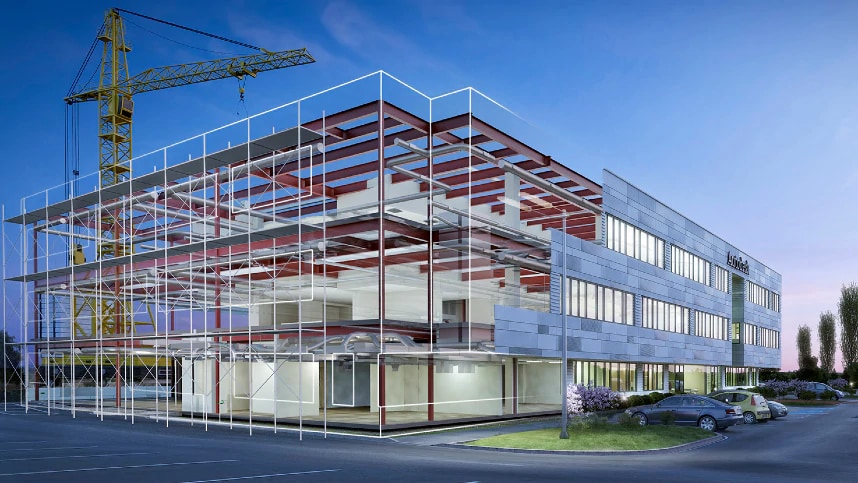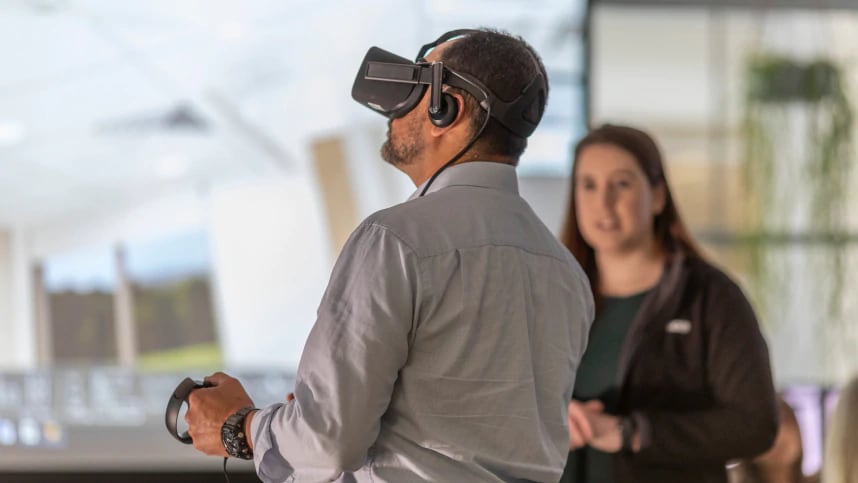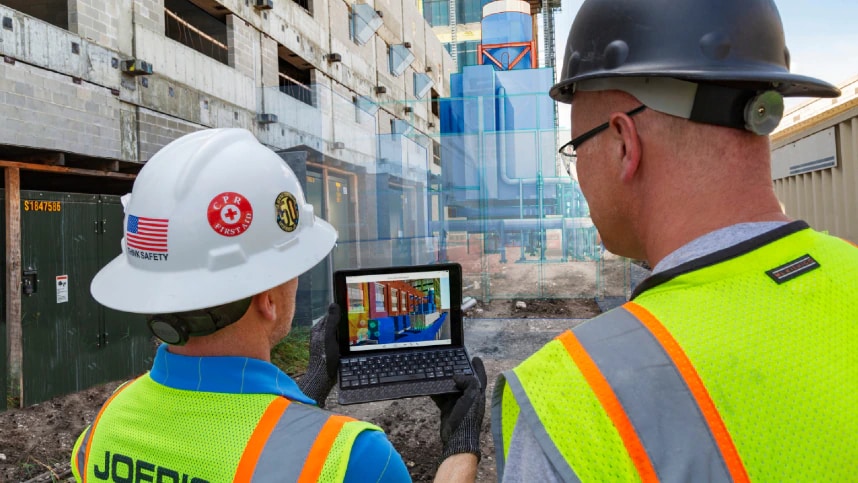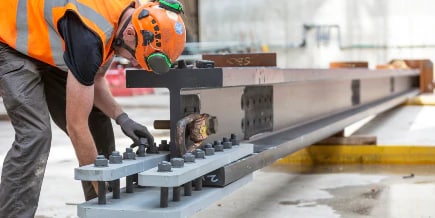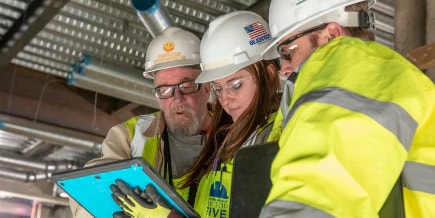Virtual Design and Construction Software
Learn how VDC technology via the Autodesk® AEC Collection helps you increase collaboration, control costs, and improve quality on your construction projects.
Learn how VDC technology via the Autodesk® AEC Collection helps you increase collaboration, control costs, and improve quality on your construction projects.
Virtual Design and Construction (VDC) is a type of technology that creates digital models of buildings and project sites. Architects, engineers, and contractors use VDC models to visualize and plan building designs, processes, schedules, budgets, and more. VDC technology allows companies to analyze construction plans from start to finish before breaking ground.
VDC and building information modeling (BIM) technology are related, but differ in purpose. BIM technology creates a digital representation of a physical building. VDC technology uses 3D BIM models and other information to digitally plan out all aspects of a construction project—from estimating costs to scheduling and risk management.
Image courtesy of KlingStubbins
The Autodesk AEC Collection is an integrated set of BIM tools that enable you to quickly and efficiently create building design, civil infrastructure and construction simulations. The collection supports all phases of the building lifecycle with design technologies that cover conceptual design through construction.
The risk of human error is inherent in construction workflows. VDC technology allows you to build a project virtually then track construction progress, optimize processes, minimize waste, and validate installations. The workflow becomes more efficient, quality improves, and risk is reduced.
Save money, increase collaboration and improve quality and safety on your construction projects.
When applied properly, VDC technology helps save time and money, from delivering more accurate preconstruction cost analysis to optimized detailing for more accurate bids and estimates.
VDC technology allows multiple multi-disciplinary parties to collaborate in a virtual environment, providing everyone the most current design information and enhancing off-site coordination.
Preconstruction visualization helps allocate proper funding to important construction aspects. Modeling through each phase of construction eliminates field errors and further improves quality outcomes.
VDC technology allows stakeholders to identify and assess safety concerns before building begins to reduce hazards that lead to incidents onsite and minimize social and environmental impact.
The AEC Collection allows VDC teams to plan, design, construct, and manage buildings virtually using integrated CAD and BIM tools. Mitigate risks early by optimizing designs for constructability. Reliably measure quantities to estimate construction costs. Coordinate models to reduce costly field coordination issues, and so much more.
BIM/VDC coordinators describe their career paths, common duties and responsibilities, and their recommended best practices on the job.
Get a VDC manager’s approach to drone deployment on large-scale projects. Learn about trends and regulations in UAV use, how to outsource deployment, and prepare, deliver, and analyze drone outputs and more.
Get an executive overview of the features and benefits of VDC and BIM technology and how they apply to construction projects.
Learn how a construction firm integrated BIM 360 Document Management technology into the VDC process for improved information management.
The AEC Collection supports both 4D and 5D BIM (US site), helping to streamline construction scheduling and more accurately estimate costs and planning.
The AEC Collection provides VDC coordinators a comprehensive set of BIM and CAD tools to help streamline the entire construction project workflow. Accelerate the design process, automate tasks, improve collaboration, and optimize management tasks from conception through completion.
The Autodesk AEC Collection includes software that supports both advanced whole-project analyses and modeling. Easily produce 3D models from 2D concepts, then simply update the data in the model as changes are made. Analyze project details using simulation, coordinate models with project quantities and schedules, then quantify and analyze time and costs.
The AEC Collection includes 3ds Max and Revit, enhanced visualization tools that allow you to turn 3D BIM models into engaging spatial experiences.
